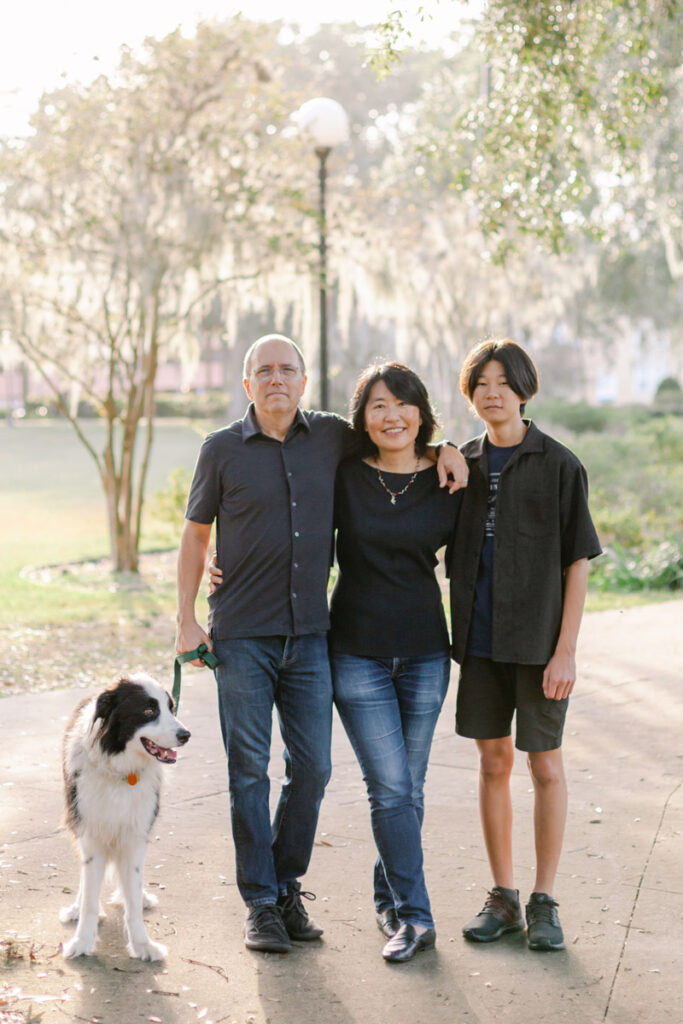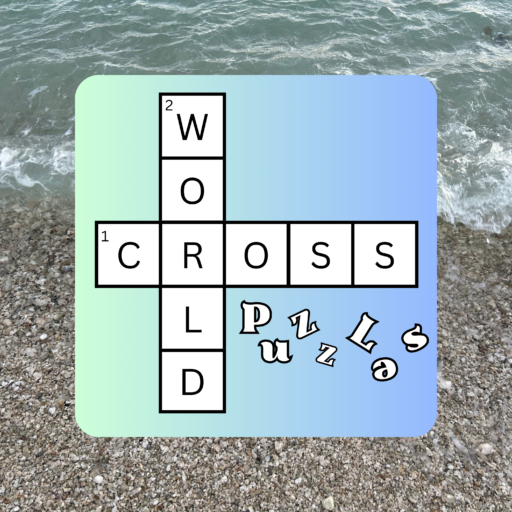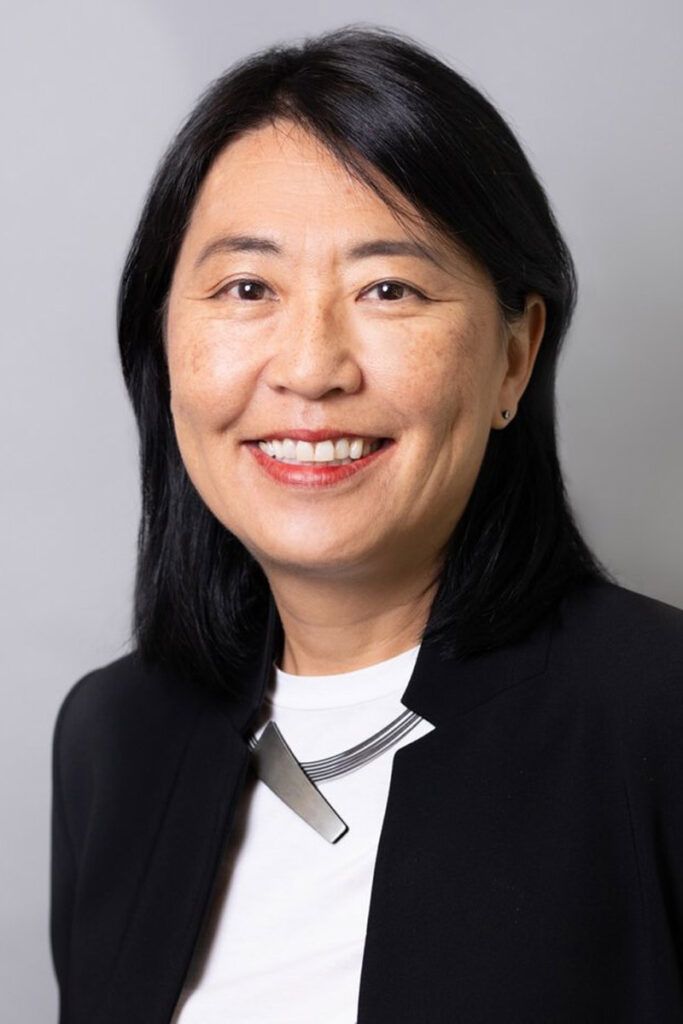
Mari Kuraishi is the president of the Jessie Ball duPont Fund, leading the Fund’s efforts to create communities of belonging for the places and institutions that Jessie Ball duPont knew and loved. Prior to joining the Fund, Mari co-founded the groundbreaking crowdfunding philanthropy site GlobalGiving with Dennis Whittle, and served as President until 2018. In 2011, Mari was named one of Foreign Policy’s top 100 Global Thinkers for “crowdsourcing worldsaving.” Prior to founding GlobalGiving, she worked at the World Bank where she created and managed some of the Bank’s most innovative loans and programs. Mari currently serves on multiple boards, including GlobalGiving, Mission Investors Exchange, DataKind, and the Jacksonville Chamber of Commerce. In addition to her native Japanese, Mari also speaks Russian, Italian, and French. She earned an undergraduate degree in history from Harvard University and did graduate work in Russian and Japanese history and politics at Harvard and Georgetown Universities. Mari also completed the Advanced Management Program at Harvard Business School.
(Click on these icons to follow Mari: ![]()
![]() )
)
Podcast
Transcript
Introduction
Hello everyone. I’m really honored to welcome Ms. Mari Kuraishi to the podcast today. I first heard about Mari-san through my work with the U.S.-Japan Council. She’s a Council Leader there. At that time, she was the head of GlobalGiving, which is a crowdfunding organization. Now she’s decided to move on from GlobalGiving and is the president of the Jessie Ball duPont Fund in Florida. Thank you very much, Mari-san, for joining me today.
I’m so pleased to be here.
Background and Upbringing
Please tell us where you were born and raised.
Sure. I was born in Japan. I grew up in Japan and Italy, came back to Japan, and then went to what was then West Germany. And from Germany I graduated high school and came here to the United States for college.
What led to that upbringing? Were your parents working abroad?
Yeah, my dad was working for Shiseido, a Japanese cosmetics company that was at the time—basically in the 70s and 80s—going global. So he was in a lot of different international markets.
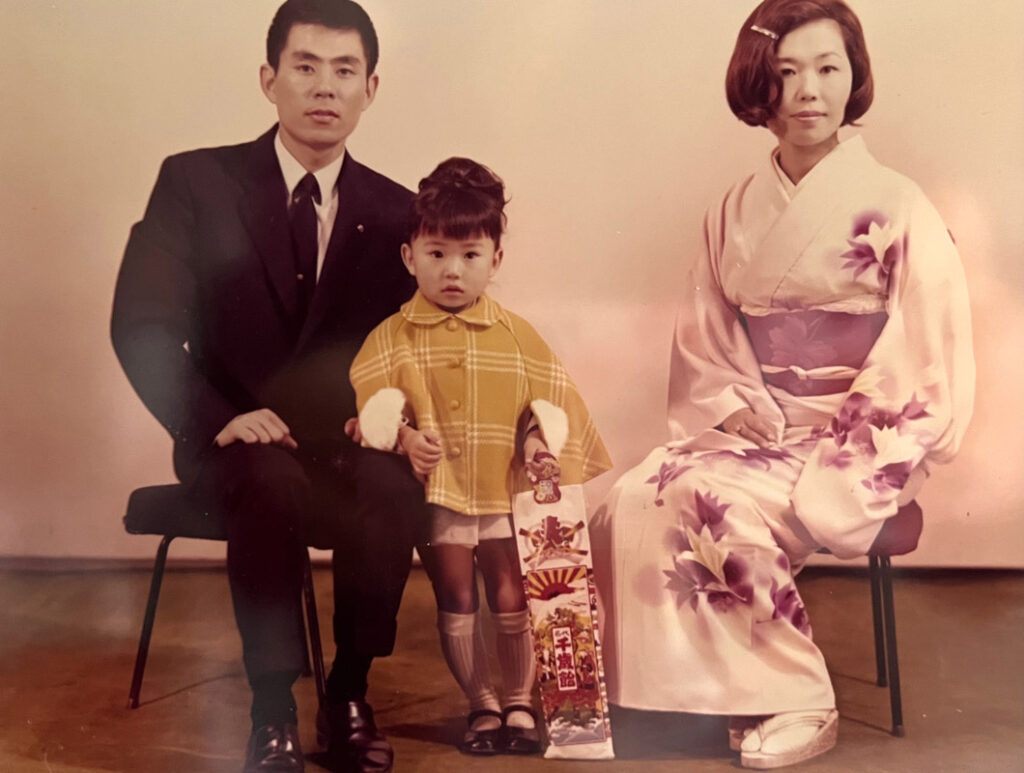
How was it growing up? Did you go to international schools or were you the only one in your local community?
I moved to Italy when I was six, which is basically first grade, and there was no Japanese school in Italy where we were. So I joined an international school, but we also had supplemental Saturday schools [with classes taught in Japanese].
I also remember doing this mail education [program] through the Ministry of Education, where they would send you little exercise sheets. At the end of the month you had to take a test, and you would mail them, and then they would correct them and mail them back to you.
I resented the whole thing. Weekends were spent studying Japanese. So I looked forward to the week.
Were you speaking Italian when you were in Italy, and German when you were in Germany?
I spoke Italian quite fluently when I lived in Italy. I picked up some German, but not that much. I can get by if I’m a tourist.
What about when you moved back to Japan? Was there a culture shock?
I moved back to Japan effectively just once, when I came back from Italy. I was in junior high by that point. The culture shock was less around Japan itself. I shifted from a British international school to an American international school.
And the shock was compounded by the fact that I had ended up skipping one grade when I was in Italy. The British system has 13 grades and the American system has 12. So when I went back to Japan and went from sixth grade to sixth grade, I’d effectively skipped two. I was two years younger than everybody.
Wow!
I was 10 or 11, and others were 12 and 13. There’s a big difference between a 12- and 13-year-old and a 10- and 11-year-old. And the combination of shifting from a British school to an American school, being made fun of for my British accent, and then being a kid amongst a bunch of prepubescent or pubescent teenagers was one of those situations that, in retrospect, was less a cultural shock that had to do with moving from Italy to Japan and more to do with my school context. But yes, I did experience quite a number of challenges shifting gears.
How did you cope with that? I’m sure it was difficult to go to school every day, but did you find friends that you could get along with?
I did. I found friends I could get along with, and I didn’t end up being a loner or anything like that. One of my friends was an American girl who grew up with parents who were in the military. We would go over to her house. Her house was filled with American foods and both her parents were working. She had two brothers. Life in that household was so radically different than the life I had at home in terms of being more catch-as-catch-can, more general rambunctiousness because there were two boys in the house. And I think there were points where I was just dumbfounded by how different you could be while you were going to the same school and taking the same classes.

Working in International Development
That’s really nice that you found such a great friend. I want to shift a little bit to your career. How did you end up in the field of international development at the World Bank? Did that have something to do with your upbringing?
It did not. In college and in graduate school, I studied Russian and Sovietology. I had entered into a PhD program in political science focused on the Soviet Union. And I had taken all my classes and my comprehensive exams in the subfields of political science.
And in the middle of it, the Soviet Union fell apart. That meant that my unit of analysis now was like 12 different republics. I was in political science, which had failed to predict the single most important thing that happened in our analysis of the Soviet Union. And I was like, “This is not looking good. I am not going to spend the rest of my life dedicated to political science studying the Soviet Union.”
So I cast around for jobs. I heard through the grapevine that the World Bank was hiring Soviet specialists. I thought, “Great, I am a Soviet specialist. I can get it.” And I did.
But I had no idea what the World Bank did. If someone had asked me during the interview, “Do you know what we do?” I would have said, “Absolutely not.” I had not studied international development. I had been studying ICBMs (intercontinental ballistic missiles) and throw weights. So I had no idea. But they hired me. And I was solely focused on the idea that I could use Russian, my knowledge of the Soviet system, and get to travel there.
I had gotten to travel there once during my undergraduate days. But to get to the Soviet Union, like everybody else in the program, I had to lie and say we were going to become teachers of Russian. We wrote essays saying we were going to become teachers to extend the fraternal understanding between the Russian and American peoples. Half my classmates were going to work for the NSA or the CIA or the Defense Intelligence Agency. So no, we weren’t going to extend fraternal understanding, but that was the only way to get to go. And now I could finally travel there legitimately, and that was incredibly exciting.
May I ask how you first became interested in Russian and the Soviet Union?
I became interested in Russia because, as I said, I had moved to West Germany for high school. West Germany in the 1980s was dominated by protests against the placement of intercontinental ballistic missiles and the purging. There was a lot of angst about the Cold War. It was typified by trips to Berlin, which was divided. You could look over to the other side and you could travel to East Berlin, but you could see what a huge contrast there was between West Berlin and East Berlin. So I was really motivated to figure out why. How could you have such different systems in the same city and the same country?
Founding GlobalGiving
Would you mind explaining about your work at the World Bank and what led you to found GlobalGiving?
Sure. I spent a good seven years working on Russia as a country officer. It was a very exciting time. I was 25, one of the youngest people on the Russia team.
But our Russian counterparts were all about my age because they were young people who had been plucked out of graduate school. And they became my friends. I could speak to them directly. Everyone else at the World Bank had to go through an interpreter. We would spend long evenings, inevitably drinking vodka and trying to figure out how to make sure that the communists wouldn’t come back again.
That experience is not typical for someone who works at the World Bank. The World Bank typically has a much more hierarchical relationship with its clients, whereas my experience of Russia was “We’re in it together.”
As I left the Russia program and went on to do corporate strategy for the World Bank, in the meantime, the Bank had sent me to an executive MBA program. So I had learned a little bit about corporate strategy, among other things. It also became clear that while there was a role for international treaty organizations like the World Bank that would extend sovereign financing to its members, and that financing and the programs we put in place were important, those programs did not reach the grassroots. It did not fundamentally engender more creativity or more commerce in the countries that we worked in.
So as my [GlobalGiving] co-founder Dennis Whittle and I were working on corporate strategy, which also included business innovation, we came to the conclusion that it was much more important to support grassroots innovation than it was to lay bets on top-down innovation.
This was 2000, the beginning of the dot-com boom and the transformation of the world. The internet was initially used primarily for email. But over time, the whole world opened up. And we said, “What might happen if we use that technology to make the efforts of grassroots organizations in the developing world visible to and open to support by donors that live in America (to begin with—and then other parts of the developed world)?” So that’s how we came up with the idea of GlobalGiving, primarily in an attempt to solve the problems that the World Bank was facing.
That is incredible, because you seem to have been really ahead of your time. How did you find the tech specialists, the people who would create the platform and execute your ideas?
We didn’t know what we didn’t know—which was helpful. I have a theory that most startups would not start if the founder had any idea of how difficult it would be. You have an unrealistic expectation of how easy it will be, and you go on from there.
It was the early 2000s. eBay was one of the top brands on the internet. Amazon was only beginning, and they were doing books and CDs. And not that many people were using Amazon then. People were still uncomfortable with the idea of typing in their credit card numbers online. So we were early, arguably too early, to support donations online, which was good because it took us forever to build our first prototype. It took us at least a year. These days you could gin it up in 90 days.
We worked with vendors in India because they were cheaper. We shouldn’t have, because they were not used to building systems that faced customers. They were used to building back-office functions. They were very talented developers but had been working in a very different space. And honestly, there weren’t that many people who knew how to create commercial customer-facing things. So we had what was okay at the time.
And we launched it. All sorts of nonprofits came to us because they were like, “Oh, great! We can reach donors.” But no. Donors came by once every three months or something. Truly tumbleweeds; cobwebs growing.
At that point we said, “Okay, obviously people are not getting up in the morning, opening their browsers and saying, ‘How can I help?’ That’s just not in their mindset. So let’s go find people where they are being encouraged to give.”
At that time, the biggest programs were corporate employee giving programs, which was dominated then by the United Way. But we said, “Surely some global companies are not satisfied with the United Way. It’s fine to support your local humane society, but what if you wanted to support the Indian village that you were from?”
So we went and tried to sell ourselves to large Fortune 100 companies that had global workforces. It turns out, they didn’t necessarily think it was a great idea to work with startups that had barely gotten their act together. These are large companies that think through how they work things. So it was harder than we expected. But we were still sort of going, in part because both Dennis and I, and another practical co-founder of ours, Donna, would occasionally take salary holidays so that we could keep paying other people.
And then at the end of 2004, there was the Southeast Asian tsunami. And suddenly, people were Googling, searching how to help fishermen in the Philippines or in Indonesia. And we were the only result that was popping up. And suddenly, people were literally waking up and searching for what we were doing. Timing matters, and we were fortunate that we could last into 2004 without folding.
That’s really amazing. Did you have to do some fundraising as well and convince others to believe in the system?
Yes, we fundraised ultimately about 10 or 11 million dollars to get started. We did not break even until 2011. It took us 10 years. In previous business plans, we had said, “We’ll be break even in three to five years.” Not true. But the 10 to 11 million dollars given to us from people like Pierre Omidyar, the founder of eBay; Skoll Foundation, [established by Jeffrey Skoll] the first CEO of eBay; Hewlett Packard; and the Sall Family Foundation—these donors basically got us started.
Did you have a network with them already, or how did you cultivate that relationship?
We just went and asked them if they thought this was a great idea. I think the way we connected with Pierre was that he was giving a talk at George Washington University. Dennis went to listen to the talk, and after the talk went up to him and said, “We’re building the eBay of international development.”
It was grassroots on your part as well! That is really cool.
Letting Your Organization Stand On Its Own
And then fast forward, and you’ve made this organization into a really huge, well-known one where you’re supporting people who are affected by disasters all over the world, including the Great East Japan Earthquake.
I was surprised that you decided to move on because I think that’s something that not a lot of founders are able to do, especially at the height of their success. Would you mind explaining a bit about that decision?
At the time I left, I’d been associated with GlobalGiving for 17 years. Dennis had started Feedback Labs and other things 10 years in to get himself off active engagement as a founder at GlobalGiving. I’d stayed on another seven years, but I knew that it was important to shift gears and ensure that the organization could stand on its own without a founder around.
There are fewer companies, but many nonprofits where the founder is around many decades after they started. And we didn’t think that was good for the organization. It gets too closely identified with that individual. So I announced that I would leave about 16 years in—and 17 years in, I left.
I read some of the media interviews that you did at that time, and it sounded like you didn’t have something lined up; you just decided to leave and then look for a different career or pathway afterwards. That takes a lot of courage.
Yes—although I think I was also pretty confident I could get a job. Maybe it wouldn’t be the perfect job.
It was the same when we left the World Bank. People would ask us, “Why are you leaving the World Bank? You have nothing lined up that will actually pay a salary.” That’s true, but I was pretty sure the World Bank would take me back if I went back. And if the World Bank wouldn’t, somebody else would.
And I had enough money set aside that I didn’t have to immediately make an income. I’d live pretty simply and frugally for a bit, but it’s not impossible to downshift your consumption and say that some things are more important.
Working at the Jessie Ball duPont Fund
That is really inspiring. And would you mind explaining about your current work at the Jessie Ball duPont Fund?
I run a private foundation. The Jessie Ball duPont Fund has about $380 million in its endowment. So it’s a medium-sized foundation, and it is based in Jacksonville, Florida. It was founded by Jessie Ball duPont, the wife of Alfred I. duPont.
There is a separate Alfred I. duPont testamentary trust that is much larger, his fortune being considerable. But she had means of her own and that’s what started the Jessie Ball duPont Fund. We operate primarily in the states of Florida, Virginia and Delaware, which are associated with Jessie.
Florida is philanthropically a young state. There aren’t very many foundations, at least in Northeast Florida. So we are what I characterize as a big fish in a little pond.
How did you end up being in Jacksonville? Did you find your job first and then decide to move there?
The Fund recruited me to come to Jacksonville. I was not looking for a job in Jacksonville. I was not looking for a domestic foundation.
But you enjoy living there?
I do.
Don’t Compare Yourself to Others
Where would you consider your hometown when you look back at everything—where you grew up, where you worked, etc.?
I don’t have a hometown. The longest I have lived anywhere is Washington, D.C. I lived there for 30 years. But would I consider it home? Not exactly.
I love going back to Japan. I go back to Japan at least once, if not twice, a year. But there is no home there that I grew up in.
And I love going back to Italy. I love going back to Germany. But again, neither of those places are home exactly.
Sometimes I feel a bit lonely about that. When I’m feeling positive about myself, I feel like I belong to many places. But sometimes, when I’m struggling with relationships, for example, I feel like I don’t fit in anywhere. How do you not feel lonely when you belong to so many places at the same time?
I think you put it right. We belong to a lot of places, but not in the same way as someone who has grown up and stayed in a place.
On the upside, I will go to a foreign country and delight in discovering its local foods and the neighborhoods, and just getting to know a place. That thrill of discovery. And I recognize that I love that because it’s what I have gotten good at doing, to discover the quirks of a place and to begin to make it your own. I will occasionally find myself on vacation somewhere thinking, “I could live here.” I don’t think most people go that far and think you could live there. But I know I do.
When I was growing up, it tore me up to leave. It tore me up to leave Italy. It tore me up to leave Japan. It tore me up to leave Germany.
And because I was thinking about all the friends I would leave behind, all the habits that I had created in that place, I would look at some of my friends who I knew were grounded in that place. They might go to college, but their parents were gonna be there, and they would be coming back to that place. And I didn’t have that.
I think it’s really only when I compare myself to somebody who has a different life experience that I suddenly feel, “My gosh, my world is so different than theirs.”
If I don’t compare myself, if I think about my own life, would I change any of it? No. I would not give up having lived in all those different places. I would not give up having made all those different friends.
So it’s always an exercise to stop comparing yourself to someone else whose experience might be different. You can put yourself in their shoes if you want to understand them, but don’t try and analyze what they’ve got better than you. It’s just not terribly productive given our experiences. It just takes you down a dark path.
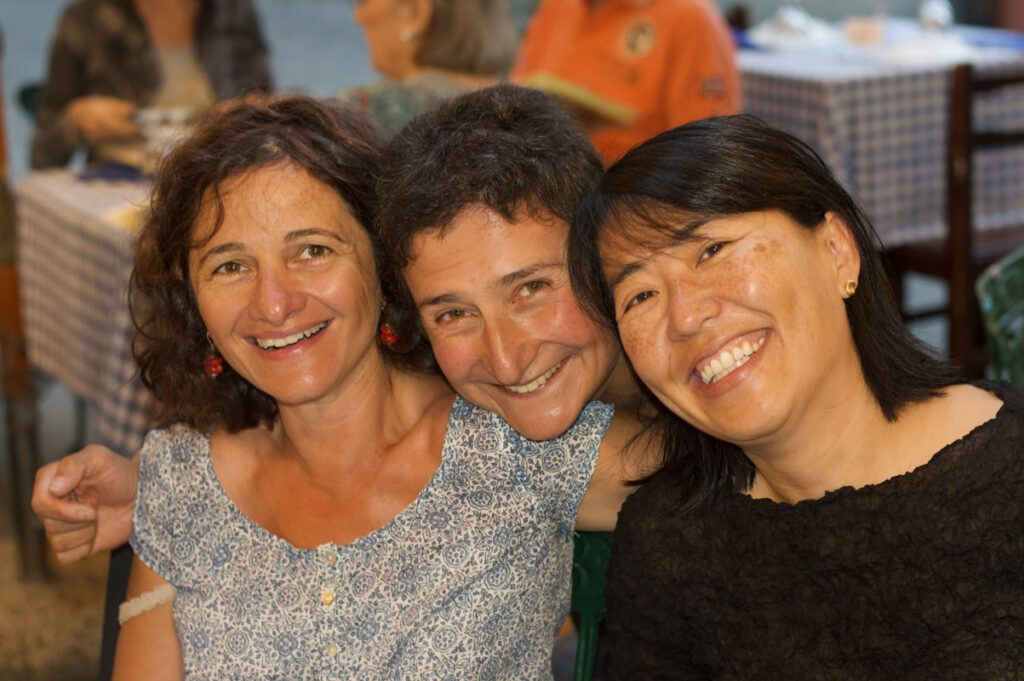
Thank you so much. I really needed to hear that.
You mentioned some friendships and how you’ve always had to say goodbye. Would you mind telling me if you have a family, and how you were able to find someone who might be able to move with you or have a long-distance relationship?
My family still lives in Japan. My parents are divorced, so my mom lives in Yokohama, my dad lives in Kobe. It was an acrimonious divorce, so they don’t talk to each other and they don’t like to hear about each other. So that’s led to additional sort of compartmentalization in terms of my own life.
I got married 20 years ago to Dennis, who was the co-founder of GlobalGiving. And I count myself lucky to have someone who is not just personally but professionally compatible. I don’t have to explain the professional side ever. He understands what the stresses are. He understands the issues. And so in that sense, I’m in very familiar ground.
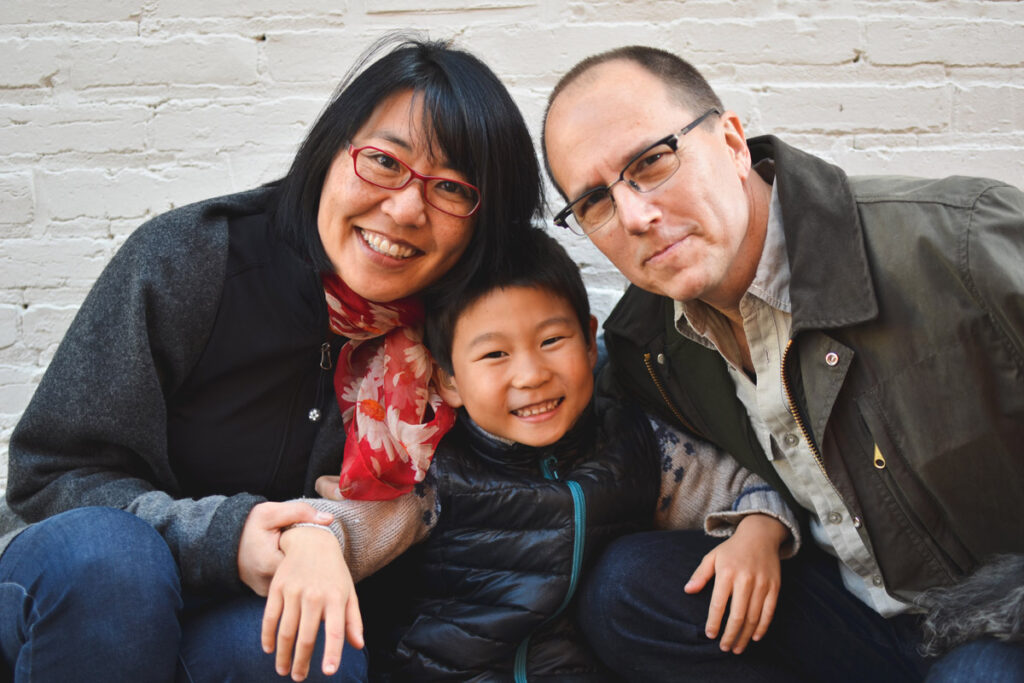
Speaking Up
One of the things I really admire about you is that you have this quiet leadership that we don’t see a lot, especially with someone who’s a founder of an organization, because you have to convince others to invest in it and believe in it. I think the stereotypical leader that you see is someone who’s very out there, outspoken, etc. How did you find your own different style of leadership, and did it take a while to come into your own terms?
It did, and I was even more quiet before. I think if I mentioned to someone that I’m an introvert today, they’d kind of look at me and say, “Are you really?” Because I’ve trained myself to be externally focused and engaged.
But I used to have a lot of trouble talking to strangers. And I remember in one of my first jobs at the World Bank, I had a great boss. Again, I was one of the youngest staff members. I was also frequently the only woman in meetings and would end up being in a “Will you go and get us sandwiches for lunch?”-type situation. Nothing unusual, really, for a junior female staff person.
And my boss said, “Mari, you don’t speak up at meetings.” And I said, “Yeah, but usually by the time the meeting is three quarters in, what I would have said has been said. So I don’t need to speak up.”
And he said, “Yes, you do. Because if you don’t speak up, then we don’t know what you think. And so we don’t know where to place you in the constellation of opinions and thoughts. And we need all of that in order to make the right decision.”
I had to admit that that was true. I think he had other objectives in mind, as in, “If you don’t speak up, you will not get noticed and you will not advance in your career.” But he put it to me in terms that were more understandable to me.
And I started to make a point of speaking up. Because I had to be pushed into speaking up, usually I don’t say a lot, but I do think about what I want to say. Many decades later, people have told me, “You don’t speak very much, but when you do speak, we listen.” That’s in part because I don’t speak very often, right? And I thought, “Well, that’s effective.” That’s a feature, not a bug.
A Privilege and a Gift
Would you have any advice for people who might be struggling with their identity? You mentioned that we shouldn’t compare ourselves to others, but is there anything else?
It’s a privilege to be able to speak another language fluently, which is to say that you understand how people who speak that other language think and organize their world. You have a particular insight into another culture, another country that others don’t.
And you can code switch from one to another. That’s both a privilege and a power. There are many people in this world who only grew up in one context, who will only experience one context. And should they end up in another context, they can find it foreign, terrifying perhaps, incomprehensible. You don’t have to be in that position. You can thoroughly understand.
You don’t have to love everything about it. There’s a reason I don’t work in Japan. After college, I didn’t go back. It wasn’t the greatest place for a woman to succeed professionally. I can understand that, act on it, but still appreciate the incredible consistency and discipline that Japanese culture brings to any art or profession. I can appreciate that about Japan and hope that I carry some of those tendencies—and still prefer to live here.
So when you feel like you’re neither one or the other, you should remind yourself that it’s a powerful privilege to have insight into more than one culture.
Thank you so much. What about people who feel shy? If they want to someday found or lead an organization, would you have any advice for people like that?
You don’t have to suddenly become a social butterfly. It’ll be tiring for you to do that anyway.
But I would suggest that you dig deep and think about what you have to offer. You have to build up the confidence that what you have to offer in terms of substance or in terms of connecting with somebody is a gift you’re giving them. That somebody may be equally introverted as you, and you could be the one to extend the hand of welcome or start the conversation.
I’d go and find someone who doesn’t look like they are engaged in conversation and are having a hard time connecting. I will go up to them, and say, “How are you doing? How is this, what do you think about this conference?” And they’re delighted because they didn’t know how to get the ball rolling.
If you think of the conversations and the connections you make as gifts, perhaps it’s a little less daunting than thinking, “I have to advertise myself.” Because fundamentally, I don’t think that works anyway. Advertising yourself is a very thin and superficial effect. Whereas if you connect with somebody and they feel like you reached out to them and they’re grateful to you, you will have a conversation with them that is far deeper than you giving them your elevator pitch.
Thank you so much. I absolutely needed to hear that. And I think it’s wonderful how you described it as a gift because every moment is special and you never know who you meet who might really help you.
I think I covered all the questions that I would like to ask, but is there anything you’d like to add?
No, but I wanted to applaud you for starting this podcast and beginning to open up this audience. There weren’t so many of us in the past, but I think there will be more of us. This is the experience of every immigrant in this country, right? There are far more of us than people think, and we do a good job of trying to pass. We’re just Americans. But I think unpacking some of the complexity that we bring to the table is really, really important.
I’m so grateful to you because I know we haven’t had a chance to talk in depth, but the fact that you trusted me to do this and are willing to make this public is such an amazing opportunity. So thank you so very much for that.
